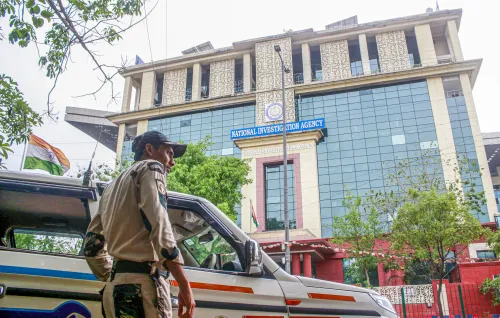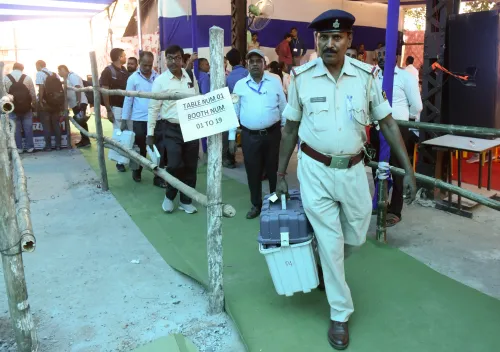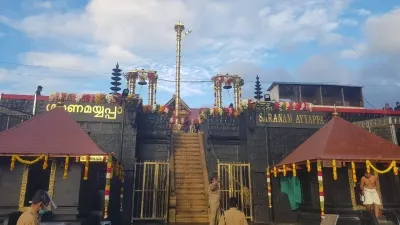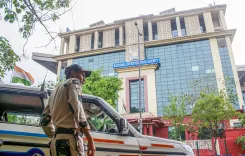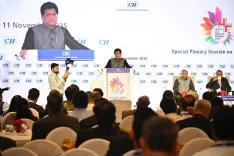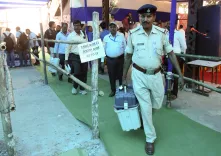Will NGT's July 22 Deadline Drive Change for TN Firecracker Units?
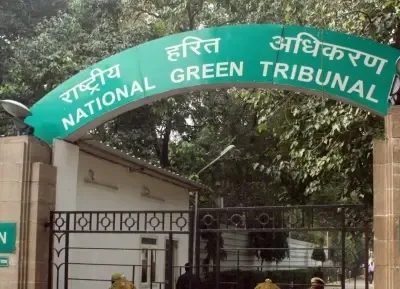
Synopsis
Key Takeaways
- NGT sets July 22 deadline for safety report on firecracker units.
- Independent committees to inspect operational practices.
- Serious safety violations reported in the industry.
- Proximity to residential areas raises safety concerns.
- Insurance coverage for workers urged by the tribunal.
Chennai, July 10 (NationPress) In light of escalating worries regarding recurrent explosions at firecracker manufacturing facilities in Tamil Nadu, the Southern Bench of the National Green Tribunal (NGT) has set July 22 as the upcoming hearing date. The tribunal has instructed two independent committees to provide a thorough report on operational safety and regulatory compliance by this date.
This action by the NGT follows a series of tragic blasts, especially in the Virudhunagar district, which is the center of Tamil Nadu's fireworks industry, revealing significant shortcomings in safety, licensing, and environmental standards.
Responding to media reports, the tribunal ordered an immediate inspection of all active units across the state.
The committees responsible for these inspections include one led by the Chief Controller of Explosives from the Petroleum and Explosives Safety Organisation (PESO) and another chaired by the District Collector or District Revenue Officer.
These teams are tasked with identifying violations in operational practices, verifying the presence and validity of all necessary licenses, and evaluating adherence to safety protocols. They have been given a span of 10 days to complete their assessments and report their findings before the July 22 hearing.
The tribunal highlighted that numerous facilities in Virudhunagar and surrounding areas were functioning without adequate environmental safeguards.
The Tamil Nadu Pollution Control Board (TNPCB) clarified that explosive storage does not fall under its consent mechanism, resulting in a regulatory gap.
PESO’s report depicted a concerning scenario: several units had violated safety regulations by utilizing unlicensed tools, failing to maintain mandated safety distances between sheds, and altering operations without updating their licenses.
In one case, a unit was discovered operating six sheds without the necessary amendments. Adding to the alarm, the tribunal pointed out a shortage of trained personnel at many of these establishments.
Many owners were reportedly unaware of the fundamental legal and safety frameworks, and few employed certified foremen to oversee hazardous processes, a significant factor contributing to the high incidence of fatal accidents.
The precarious situation is exacerbated by the proximity of many units to agricultural fields and residential areas, leading to an environmental and human rights crisis. The bench, consisting of Justice Pushpa Sathyanarayana and expert member K. Satyagopal, observed that such closeness endangers not only workers but entire communities, particularly marginalized groups who are disproportionately impacted.
In a notable initiative, the tribunal urged the Tamil Nadu government to consider making insurance coverage mandatory for all workers as a prerequisite for issuing or renewing operational licenses.
The tribunal’s intervention highlights the urgent need for reform and regulation in the fireworks sector, emphasizing worker safety, environmental protection, and accountability. The findings of the two committees, due on July 22, are expected to dictate the next steps.


